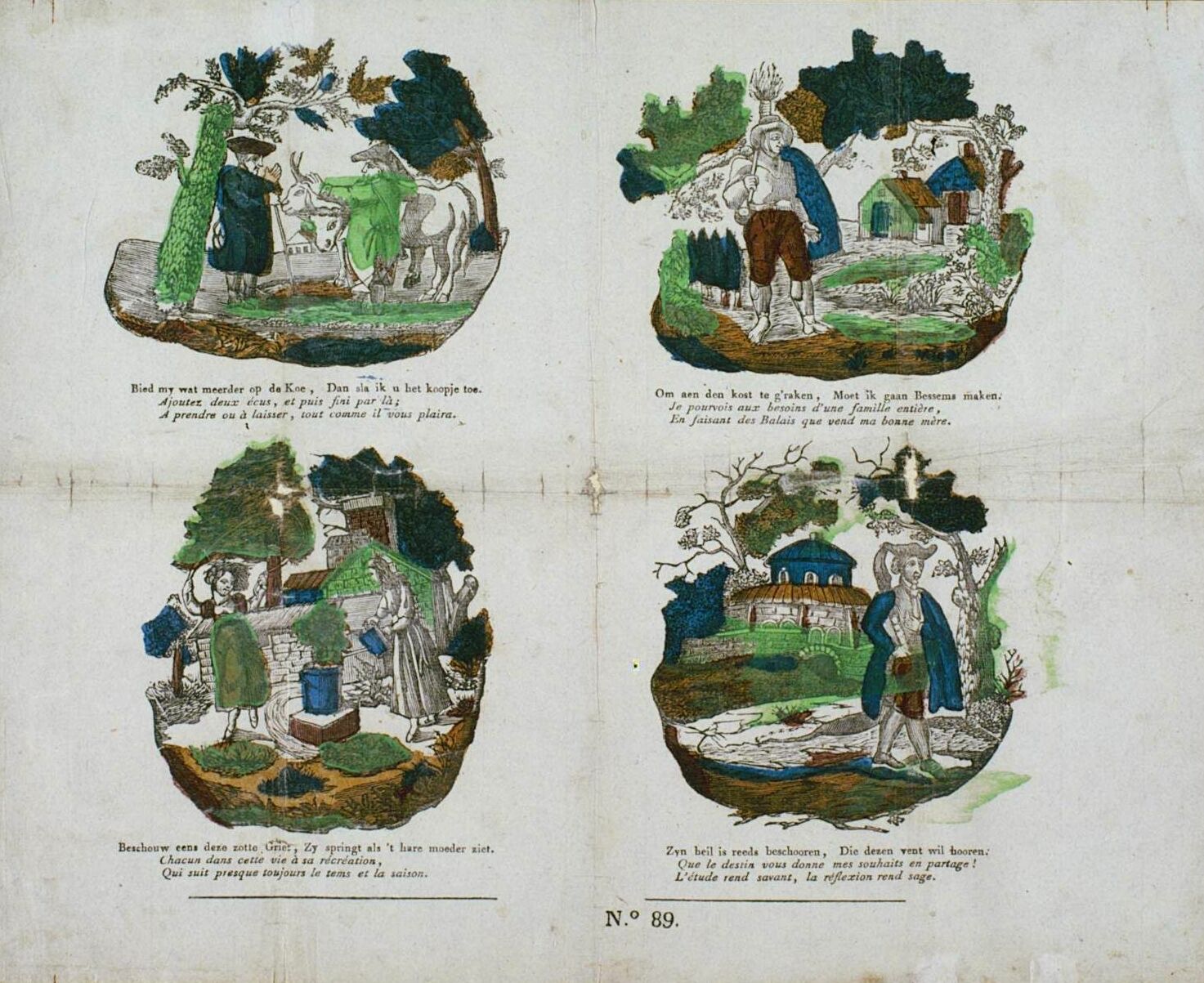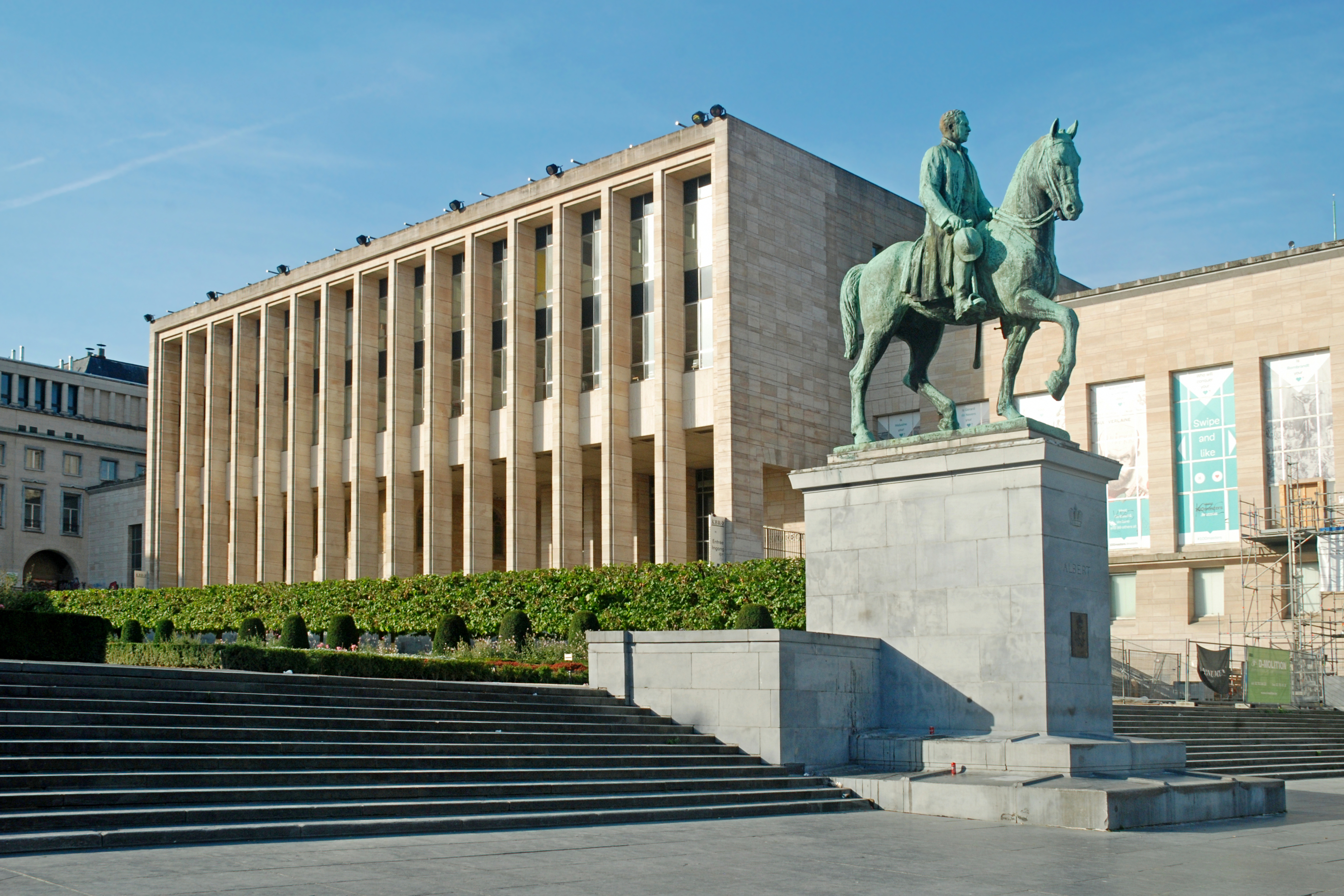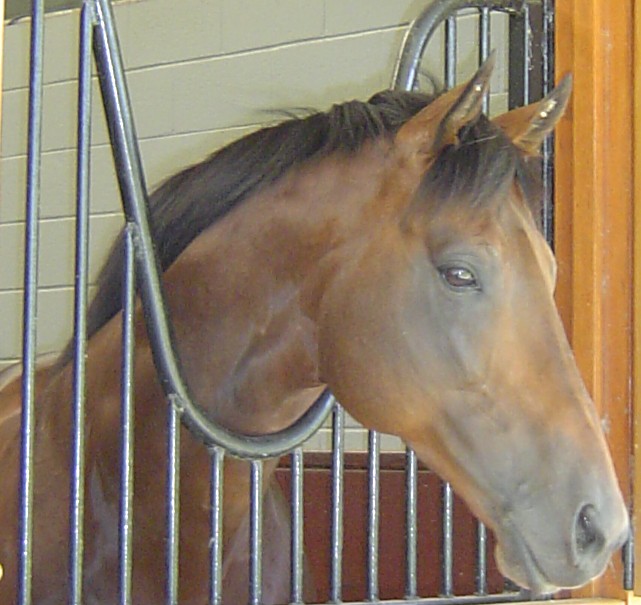|
François Du Four
Baron François du Four (Turnhout, Belgium, 1871 – 1945) was a Belgian industrialist. He married Germaine Herry in 1902, and together they had seven daughters and a son. When his mother, Josephina Frederika Dessauer, died in 1904, he became the owner of the family business Brepols, a paper – and playing card factory. The company at that moment had about 1000 employees. From 1919 up to 1932 François du Four was mayor of Turnhout. In 1929, King Albert I of Belgium knighted him and granted him the title of baron. The heraldic motto of the du Fours is ''Melius esse quam vider'', which means ''it is better to be than to seem'', and their own weapon-shield represents a lion. In Turnhout there is a street named after him: the baron François du Four street, which starts on the central market place of Turnhout. In this street the old factory buildings of Brepols were located. In 1945, Francois du Four died at the age of 74. François du Four liked racing-horses. His thoroughbreds ... [...More Info...] [...Related Items...] OR: [Wikipedia] [Google] [Baidu] |
Turnhout
Turnhout () is a Belgium, Belgian Municipalities in Belgium, municipality and city located in the Flemish Region, Flemish Provinces of Belgium, province of Antwerp (province), Antwerp. The municipality comprises only the city of Turnhout proper. In 2021, Turnhout had a total population of 45,874. The total area is . The agglomeration, however, is much larger, accounting up to 81,473 inhabitants. Turnhout is known for its playing card industry, as it houses the head office of the world's largest manufacturer of playing cards, Cartamundi. Turnhout is also the Capital (political), capital of the administrative district with the same name. The Turnhout city council often promotes the city as "the capital of the Campine, Kempen area". This designation is entirely unofficial, since the Campine, Kempen area is far larger than the Turnhout district and does not form an administrative unit. Turnhout serves as the economic and cultural center for other communities in the immediate vicinity ... [...More Info...] [...Related Items...] OR: [Wikipedia] [Google] [Baidu] |
Belgium
Belgium, ; french: Belgique ; german: Belgien officially the Kingdom of Belgium, is a country in Northwestern Europe. The country is bordered by the Netherlands to the north, Germany to the east, Luxembourg to the southeast, France to the southwest, and the North Sea to the northwest. It covers an area of and has a population of more than 11.5 million, making it the 22nd most densely populated country in the world and the 6th most densely populated country in Europe, with a density of . Belgium is part of an area known as the Low Countries, historically a somewhat larger region than the Benelux group of states, as it also included parts of northern France. The capital and largest city is Brussels; other major cities are Antwerp, Ghent, Charleroi, Liège, Bruges, Namur, and Leuven. Belgium is a sovereign state and a federal constitutional monarchy with a parliamentary system. Its institutional organization is complex and is structured on both regional ... [...More Info...] [...Related Items...] OR: [Wikipedia] [Google] [Baidu] |
Brepols
Brepols is a Belgian publishing house. Once, it was one of the largest printing companies in the world and one of the main employers in Turnhout (Belgium). Besides its printing business, Brepols is also active as a publisher. Formerly well known for its missals, the company is now better known for its specialization in historical studies and editions of classical authors, including the Corpus Christianorum. History In 1795, Pieter Corbeels, a printer from Leuven, moved to Turnhout together with his assistant Philippus Jacobus Brepols, possibly to flee the French army, which occupied Belgium at that time. Corbeels rapidly became the town printer, and he printed passports and pamphlets for the city of Turnhout. In the summer of 1798, Corbeels went to fight against the French as one of the leaders of the ‘’ Boerenkrijg’’. He was caught and executed. Because of Corbeels' fight against the French, his apprentice, Philippus Jacobus Brepols, had to take over responsibility f ... [...More Info...] [...Related Items...] OR: [Wikipedia] [Google] [Baidu] |
Albert I Of Belgium
Albert I (8 April 1875 – 17 February 1934) was King of the Belgians from 23 December 1909 until his death in 1934. Born in Brussels as the fifth child and second son of Prince Philippe, Count of Flanders and Princess Marie of Hohenzollern-Sigmaringen, Albert succeeded his uncle, Leopold II, to the Belgian throne in 1909. He married Elisabeth of Bavaria, with whom he had three children. Albert ruled during an eventful period in the history of Belgium, which included the period of World War I (1914–1918), when most of Belgium was occupied by German forces. Other crucial events of his reign included the adoption of the Treaty of Versailles in June 1919, the ruling of the Belgian Congo as an overseas possession of Belgium along with the League of Nations mandate of Ruanda-Urundi, the reconstruction of Belgium following the war, and the first five years of the Great Depression (1929–1934). Albert died in a mountaineering accident in eastern Belgium in 1934, at the age ... [...More Info...] [...Related Items...] OR: [Wikipedia] [Google] [Baidu] |
Baron
Baron is a rank of nobility or title of honour, often hereditary, in various European countries, either current or historical. The female equivalent is baroness. Typically, the title denotes an aristocrat who ranks higher than a lord or knight, but lower than a viscount or count. Often, barons hold their fief – their lands and income – directly from the monarch. Barons are less often the vassals of other nobles. In many kingdoms, they were entitled to wear a smaller form of a crown called a ''coronet''. The term originates from the Latin term , via Old French. The use of the title ''baron'' came to England via the Norman Conquest of 1066, then the Normans brought the title to Scotland and Italy. It later spread to Scandinavia and Slavic lands. Etymology The word '' baron'' comes from the Old French , from a Late Latin "man; servant, soldier, mercenary" (so used in Salic law; Alemannic law has in the same sense). The scholar Isidore of Seville in the 7th century t ... [...More Info...] [...Related Items...] OR: [Wikipedia] [Google] [Baidu] |
Thoroughbred
The Thoroughbred is a horse breed best known for its use in horse racing. Although the word ''thoroughbred'' is sometimes used to refer to any breed of purebred horse, it technically refers only to the Thoroughbred breed. Thoroughbreds are considered " hot-blooded" horses that are known for their agility, speed, and spirit. The Thoroughbred, as it is known today, was developed in 17th- and 18th-century England, when native mares were crossbred with imported Oriental stallions of Arabian, Barb, and Turkoman breeding. All modern Thoroughbreds can trace their pedigrees to three stallions originally imported into England in the 17th and 18th centuries, and to a larger number of foundation mares of mostly English breeding. During the 18th and 19th centuries, the Thoroughbred breed spread throughout the world; they were imported into North America starting in 1730 and into Australia, Europe, Japan and South America during the 19th century. Millions of Thoroughbreds exist today, a ... [...More Info...] [...Related Items...] OR: [Wikipedia] [Google] [Baidu] |
Retie
Retie (; french: Réthy, ) is a municipality located in the Campine region of the province of Antwerp, Belgium. The municipality comprises the town of Retie proper and several hamlets of which Schoonbroek is the largest. In 2021, Retie had a total population of 11,582. The total area is 48.39 km2. The Francophone name of Retie is Rethy. Famous inhabitants * Julien Cools (born 1947), footballer * Lodewijk de Koninck (1838–1924), writer * Peter van Hove (?–1793), Friar Minor * Zefa Raeymaekers, (1922–2017), journalist, poet, politician See also * Princes Park, Retie, which was also a location in the award-winning tv series A television show – or simply TV show – is any content produced for viewing on a television set which can be broadcast via over-the-air, satellite, or cable, excluding breaking news, advertisements, or trailers that are typically placed betw ... Flesh and Bones. References External links *Official website Municipalities of Antwer ... [...More Info...] [...Related Items...] OR: [Wikipedia] [Google] [Baidu] |
1871 Births
Events January–March * January 3 – Franco-Prussian War – Battle of Bapaume: Prussians win a strategic victory. * January 18 – Proclamation of the German Empire: The member states of the North German Confederation and the south German states, aside from Austria, unite into a single nation state, known as the German Empire. The King of Prussia is declared the first German Emperor as Wilhelm I of Germany, in the Hall of Mirrors at the Palace of Versailles. Constitution of the German Confederation comes into effect. It abolishes all restrictions on Jewish marriage, choice of occupation, place of residence, and property ownership, but exclusion from government employment and discrimination in social relations remain in effect. * January 21 – Giuseppe Garibaldi's group of French and Italian volunteer troops, in support of the French Third Republic, win a battle against the Prussians in the Battle of Dijon. * February 8 – 1871 French legislative election elect ... [...More Info...] [...Related Items...] OR: [Wikipedia] [Google] [Baidu] |
1945 Deaths
1945 marked the end of World War II and the fall of Nazi Germany and the Empire of Japan. It is also the only year in which Nuclear weapon, nuclear weapons Atomic bombings of Hiroshima and Nagasaki, have been used in combat. Events Below, the events of World War II have the "WWII" prefix. January * January 1 – WWII: ** Nazi Germany, Germany begins Operation Bodenplatte, an attempt by the ''Luftwaffe'' to cripple Allies of World War II, Allied air forces in the Low Countries. ** Chenogne massacre: German prisoners are allegedly killed by American forces near the village of Chenogne, Belgium. * January 6 – WWII: A German offensive recaptures Esztergom, Kingdom of Hungary (1920–1946), Hungary from the Russians. * January 12 – WWII: The Soviet Union begins the Vistula–Oder Offensive in Eastern Europe, against the German Army (Wehrmacht), German Army. * January 13 – WWII: The Soviet Union begins the East Prussian Offensive, to eliminate German forces in East Pruss ... [...More Info...] [...Related Items...] OR: [Wikipedia] [Google] [Baidu] |
Flemish Businesspeople
Flemish (''Vlaams'') is a Low Franconian dialect cluster of the Dutch language. It is sometimes referred to as Flemish Dutch (), Belgian Dutch ( ), or Southern Dutch (). Flemish is native to Flanders, a historical region in northern Belgium; it is spoken by Flemings, the dominant ethnic group of the region. Outside of Flanders, it is also spoken to some extent in French Flanders and the Dutch Zeelandic Flanders. Terminology The term ''Flemish'' itself has become ambiguous. Nowadays, it is used in at least five ways, depending on the context. These include: # An indication of Dutch written and spoken in Flanders including the Dutch standard language as well as the non-standardized dialects, including intermediate forms between vernacular dialects and the standard. Some linguists avoid the term ''Flemish'' in this context and prefer the designation ''Belgian-Dutch'' or ''South-Dutch'' # A synonym for the so-called intermediate language in Flanders region, the # An indicatio ... [...More Info...] [...Related Items...] OR: [Wikipedia] [Google] [Baidu] |
People From Turnhout
A person ( : people) is a being that has certain capacities or attributes such as reason Reason is the capacity of consciously applying logic by drawing conclusions from new or existing information, with the aim of seeking the truth. It is closely associated with such characteristically human activities as philosophy, science, ..., morality, consciousness or self-consciousness, and being a part of a culturally established form of social relations such as kinship, ownership of property, or legal obligation, legal responsibility. The defining features of personhood and, consequently, what makes a person count as a person, differ widely among cultures and contexts. In addition to the question of personhood, of what makes a being count as a person to begin with, there are further questions about personal identity and self: both about what makes any particular person that particular person instead of another, and about what makes a person at one time the same person as they w ... [...More Info...] [...Related Items...] OR: [Wikipedia] [Google] [Baidu] |
Barons Of Belgium
Baron is a rank of nobility or title of honour, often hereditary, in various European countries, either current or historical. The female equivalent is baroness. Typically, the title denotes an aristocrat who ranks higher than a lord or knight, but lower than a viscount or count. Often, barons hold their fief – their lands and income – directly from the monarch. Barons are less often the vassals of other nobles. In many kingdoms, they were entitled to wear a smaller form of a crown called a ''coronet''. The term originates from the Latin term , via Old French. The use of the title ''baron'' came to England via the Norman Conquest of 1066, then the Normans brought the title to Scotland and Italy. It later spread to Scandinavia and Slavic lands. Etymology The word ''baron'' comes from the Old French , from a Late Latin "man; servant, soldier, mercenary" (so used in Salic law; Alemannic law has in the same sense). The scholar Isidore of Seville in the 7th century thoug ... [...More Info...] [...Related Items...] OR: [Wikipedia] [Google] [Baidu] |





_(LOC)_-_Flickr_-_The_Library_of_Congress.jpg)

_1938.jpg)